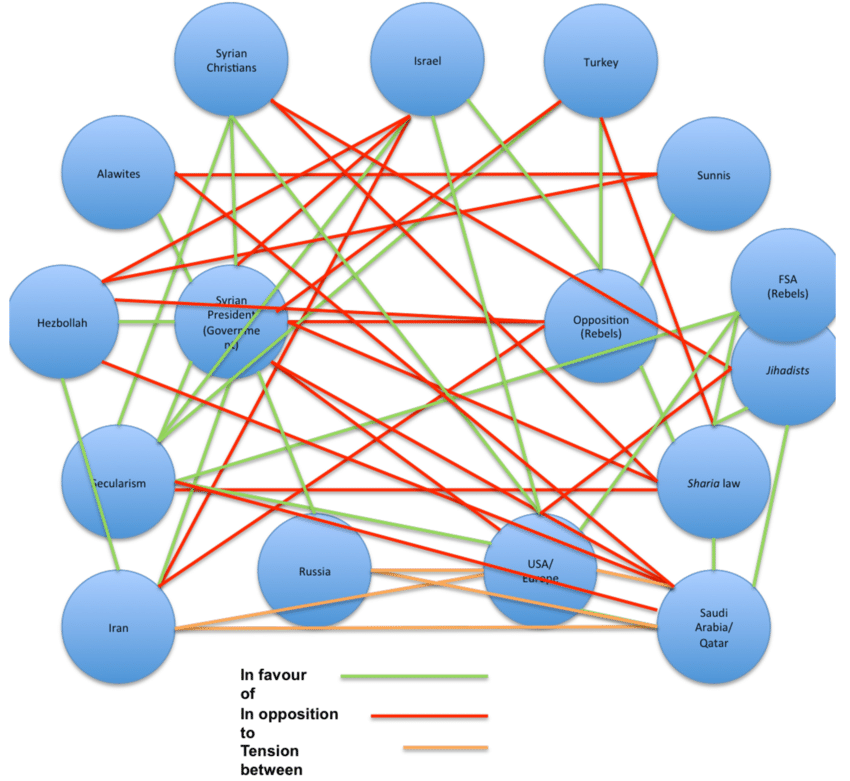Not Everything Can Be Reduced to "Oppressor" vs. "Oppressed"
As I’ve argued earlier, not every ethical problem and political dispute can be reduced to “oppressors” vs. the “oppressed.”
Whether it is immigration, abortion, Israel and Gaza, the British Empire, trans-rights vs. lesbian rights, the Mexican revolution, there are levels of complexity involved, and some things require nuanced remarks rather than knee-jerk reactions, some topics need essay responses rather than multi-choice answers, because history, politics, and humans in general are complex.
I mean, check out this network of alliances of foreign countries and warring groups in Syria and tell me who the oppressors are!

And yet, the oppressor vs. oppressed narrative is what drives much of the media, outrage culture, campus life, and even academia. Why?
The dichotomy of oppressor vs. oppressed goes back to Georg Hegel and was taken up as part of Marxist thinking. Lenin wrote:
That is why the focal point in the Social-Democratic programme must be that division of nations into oppressor and oppressed which forms the essence of imperialism, and is deceitfully evaded by the social-chauvinists and Kautsky. This division is not significant from the angle of bourgeois pacifism or the philistine Utopia of peaceful competition among independent nations under capitalism, but it is most significant from the angle of the revolutionary struggle against imperialism.
This is a seductive yet specious form of reasoning, that does not bear good fruit in the end. Let me explain why!
To read further, consider taking out a paid subscription, only $7 per month or $75 per year, supports me in my ministry and scholarship, and gets you 3-4 posts per week on biblical studies, Christianity and gender relationships, cultural commentary, book reviews, previews of my forthcoming books, and some cool videos.


